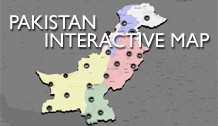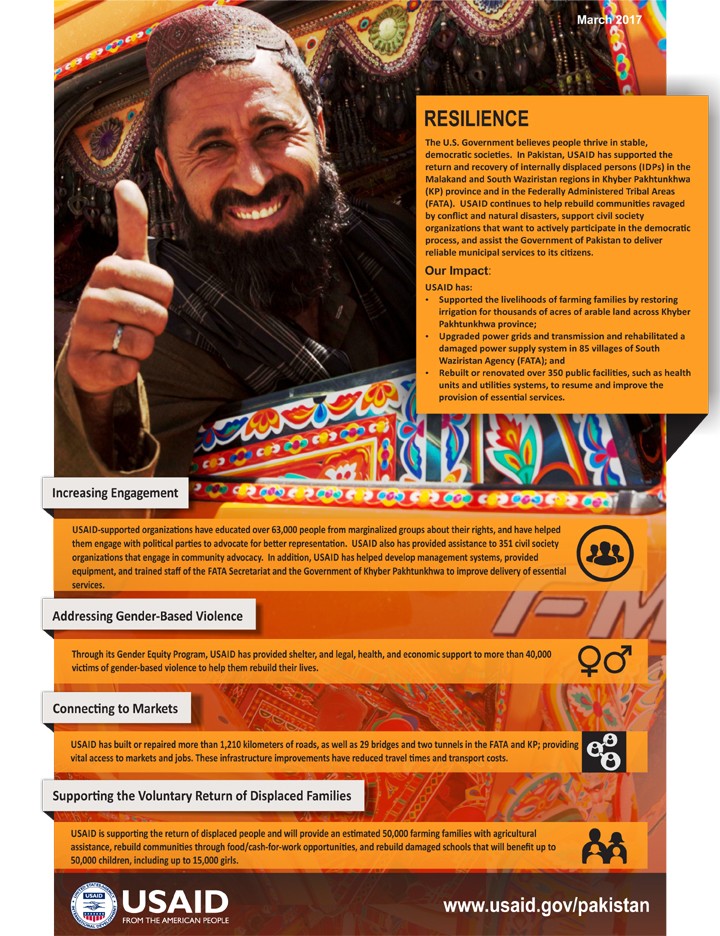The U.S. Government believes people thrive in stable, democratic societies. In Pakistan, USAID has supported the return and recovery of internally displaced persons (IDPs) in the Malakand and South Waziristan regions in Khyber Pakhtunkhwa (KP) province and in the Federally Administered Tribal Areas (FATA). USAID continues to help rebuild communities ravaged by conflict and natural disasters, support civil society organizations that want to actively participate in the democratic process, and assist the Government of Pakistan to deliver reliable municipal services to its citizens.
OUR IMPACT
USAID has:
- Supported the livelihoods of farming families by restoring irrigation for thousands of acres of arable land across FATA and Khyber Pakhtunkhwa province;
- Upgraded power grids and transmission and rehabilitated a damaged power supply system in 85 villages of South Waziristan Agency (FATA);
- Rebuilt or renovated over 350 public facilities, such as health units and utility systems, to resume and improve the provision of essential services.
Increasing Engagement
USAID-supported organizations have educated over 63,000 people from marginalized groups about their rights, and have helped them engage with political parties to advocate for better representation. USAID also has provided assistance to 351 civil society organizations that engage in community advocacy. In addition, USAID has helped develop management systems, provided equipment, and trained staff of the FATA Secretariat and the Government of Khyber Pakhtunkhwa to improve delivery of essential services.
Addressing Gender-Based Violence
Through its Gender Equity Program, USAID has provided shelter, as well as legal, health, and economic support to more than 40,000 victims of gender-based violence to help them rebuild their lives.
Connecting to Markets
USAID has built or repaired more than 1,211 kilometers of roads across Pakistan, as well as 29 bridges and two tunnels in the FATA and KP; providing vital access to markets and jobs. These infrastructure improvements have reduced travel times and transport costs.
Supporting the Voluntary Return of Displaced Families
USAID is supporting the return of displaced people and plans to provide up to 50,000 farming families with agricultural assistance, rebuild communities through food/cash-for-work opportunities, and rebuild damaged schools that will potentially benefit up to 50,000 children, including up to 15,000 girls.










Comment
Make a general inquiry or suggest an improvement.